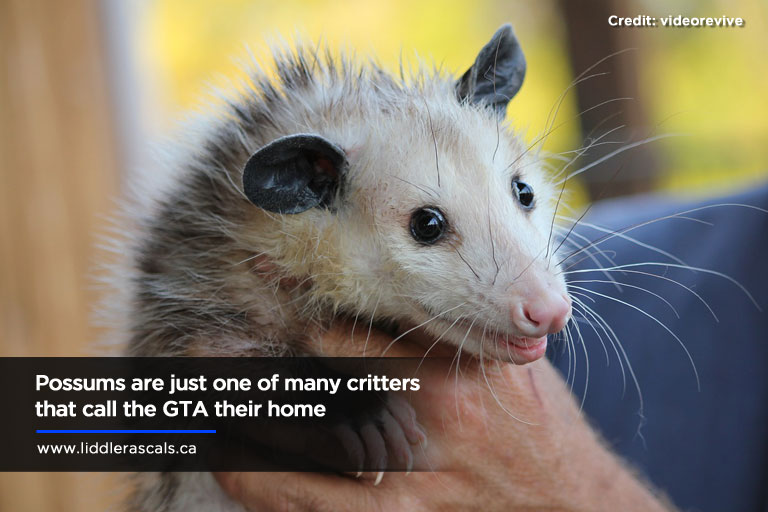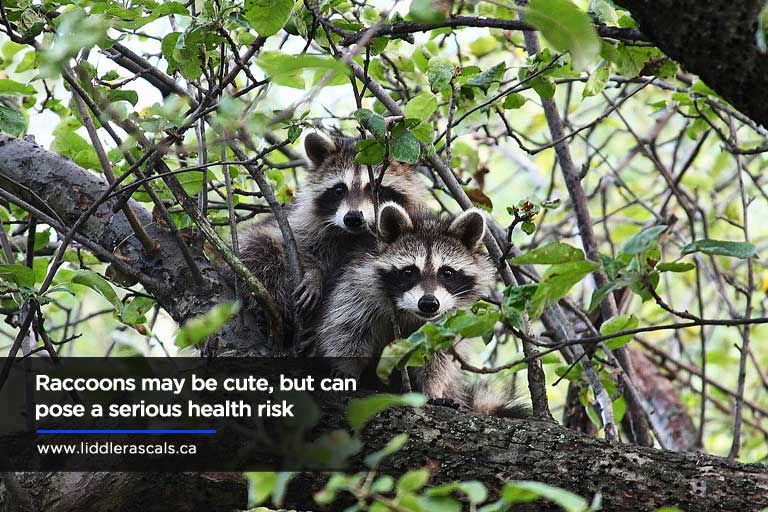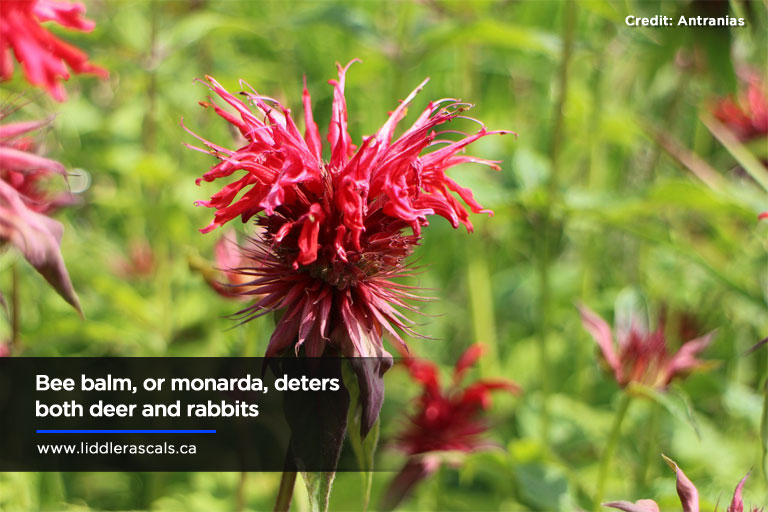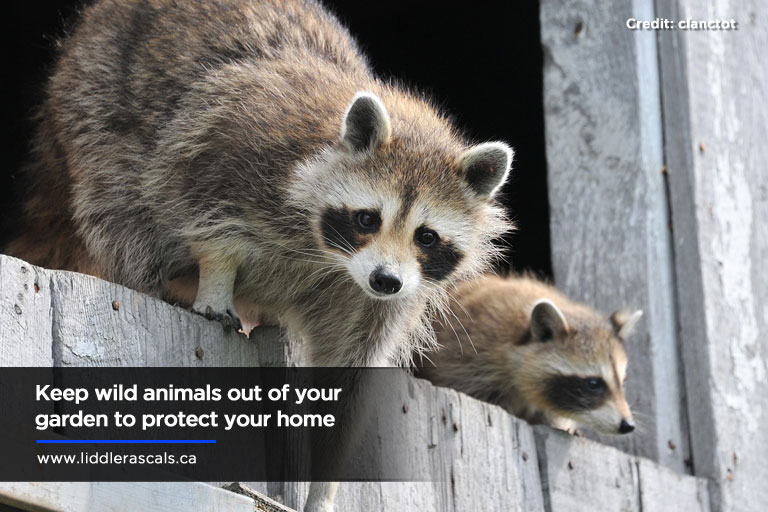Living in an urban centre doesn’t shield us from all that nature has to offer — nor would we want it to. We love our parks and all the flora and fauna they provide. Seeing deer (or even coyotes) along the Humber Trail, the Rouge Valley, or in High Park can be the highlight of a day’s walk. However, we don’t want to see wildlife that threatens our gardens, homes, or pets. We can live in harmony with our local critters, but first we need to prevent wildlife from entering our gardens and homes.
Protect your Garden from Animals, Pests and Wildlife
The following tips can help you deter destructive backyard visitors in a way that’s both humane and effective:
Know what you’re up against
It’s important to know what kind of animals are native to your region, so you can take proper precautions. There’s more wildlife in the Greater Toronto Area (including Markham, Pickering, and North York) than you might see on a daily basis. Of course, squirrels (both red, grey, and black), mice and rats, and raccoons are ubiquitous; but the following animals also call this area home:
- White-tailed Deer
- Muskrat
- Meadow voles
- Eastern chipmunk
- Groundhog/woodchuck
- Eastern cottontail rabbit
- Coyotes
- Red foxes
- Bats
- Minks
- Possums
- Striped skunks
Know what type of animals may try to live under your deck or shed or claim ownership of your plants. It’s important information before you set about trying to prevent them. In the Toronto area, the likeliest animals to cohabitate with humans are raccoons, squirrels, and mice. All three can be dangerous in their own way.
These animals can all carry infectious diseases (leptospirosis in raccoons, Lyme disease and salmonellosis in squirrels, and any number of parasitic and fungal diseases in wild mice), to structural and electrical damage caused by gnawing and nesting. Keep them out of your garden, and you will keep them out of your house.

https://pixabay.com/photo-1612593/
The best de-fence
An appropriate-height fence will keep many animals from entering your garden. Deer will often be kept at bay by a regular height (1.2 metre) fence–although in areas where they are more populous, you might want a taller fence. Rabbits and groundhogs like to dig, however, so make sure that the fencing extends least 25 cm below ground level. It’s best to have your fence in place before planting vegetables so that the local fauna never gets used to your backyard as a regular food source.
Secure your deck and out buildings
Wildlife like to set up nests inside or under decks, sheds, and garages. Therefore, it’s imperative that you deter them right from the beginning. Fix any holes in your shed or garage, and move food sources (such as bird seed) inside your house to reduce access. If you have an enclosed deck, check for any areas that animals might get in and repair them.
Those wily raccoons
The greater Toronto area is famous for its raccoon population. In 2017 there were a reported 100,000 of these masked bandits living in the city. They’re clever and kind of cute, and we seem to be collectively fascinated by them. However, they can pose a serious risk to both your health and to your home, and should be kept away at all costs. Once they’ve settled in, however, they are very hard to get rid of. Your best course of action then is to call for professional help.
Raccoons are notoriously resilient and can adapt to even harsh deterrents. However, there are a number of things you can do to prevent raccoons from gaining a foothold in the first place:
Reduce the bird feeding
Wild birds are not the culprit here. Rats like to come and eat whatever seeds and other foods the birds drop while feeding, and raccoons think rats are delicious.
Ammonia: Raccoons hate ammonia
Set up “ammonia stations” around the yard by soaking a rag in ammonia and placing it in a dish with ventilation holes cut in the lid. You will need to periodically refill the ammonia as the smell subsides. However, if a den has already been established, don’t put ammonia in there. Ammonia is highly toxic. If you see a raccoon latrine in your yard, you can pour ammonia over that, but be aware that it will burn your grass.
Sprays
Mix 60 mL (2 ounces) of essential peppermint oil with equal parts rubbing alcohol in a spray bottle, then fill the bottle with ordinary tap water. Spray anywhere you see traces of raccoons; and if you have a den established, spray around the den–except at the point of entry.
Spikes/sprinklers/motion-activated lights
Spikes along the top of your fence can prevent raccoons from breaching your yard. Just make sure that any long overhanging branches from trees outside the yard can’t be used as ladders or pathways. You might also install a motion-activated sensor to your sprinkler system or your lights.
Plant that deer and rabbits hate
If deer, rabbits, or other herbivores are prevalent in your area, you’ll want to put plants in your garden that they don’t want to eat. A number of flowers and ground covers grow well in this zone that are both beautiful and discourage garden raids by unwanted guests. Here are just a few such plants that can discourage hungry herbivores:
Bee Balm (Monarda)
Beautiful and fragrant, this hardy, long-blooming perennial is a beautiful accent that hummingbirds and bees love, but rabbits and deers avoid.
Cat Mint (Nepeta)
With its grey-silver leaves and lavender flower clusters, cat mint is an attractive ground cover that is just not appealing to deer. Plant it around more vulnerable plants as protection.
Japanese Painted Fern (Athyrium niponicum)
As with most ferns, deer don’t appreciate these beauties. Stunning accent ferns that won’t take over the garden, the Japanese Painted Fern looks amazing while performing its deer-repelling duties.
Lily-of-the-valley (Convallaria majalis)
Ubiquitous and fast-spreading, this sweet-smelling ground cover is a great repellent for deer, and in fact is poisonous. Don’t worry, wild animals know this and won’t eat it. Plant it around vulnerable plants, and keep it well-watered through the summer months to prevent its leaves from turning brown and withering.
Sea Holly (Eryngium)
An exquisite cut flower, these thistle-like plants are incredibly deer and rabbit resistant, and are also exceptionally drought- and heat-tolerant making them quite low-maintenance additions. They’re perfect for the back of the garden to add structure and levels, and add a touch of whimsy to even the most formal flower groupings.
Seal your home
Despite how destructive wildlife can sometimes be, they do share our world. However, they don’t have to share our homes. Many pests can transmit significant diseases to humans; and nesting habits can cause structural or electrical damage to your home, increasing the risk of fire–not to mention the cost of repairs, once the damage has been discovered. The best course of action is to keep them outside. Have your roof checked for any breaches, especially around vents or under eaves. Seal any holes or cracks around windows and check the foundation carefully.
Wild animals seek a comfy, warm place to call home in colder months, and a source of fresh food year round. They’re not out to get us, even though it sometimes might feel this way. Deterring them humanely and naturally is your first defence. If they do manage to set up house with you, or ransack the garden, call a professional wildlife removal company remove and relocate the creatures to somewhere safer or them, and for you.
Expert Wildlife Removal in the Greater Toronto Area
We are available 24 hours a day, seven days a week.
Call us at (416) 356-5886 or contact us online.










Leave a Reply
You must be logged in to post a comment.